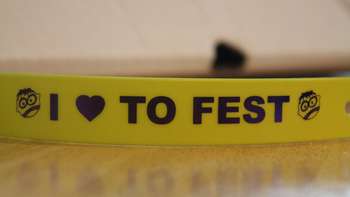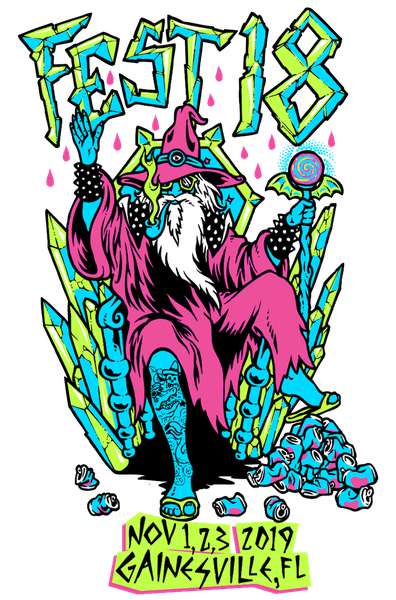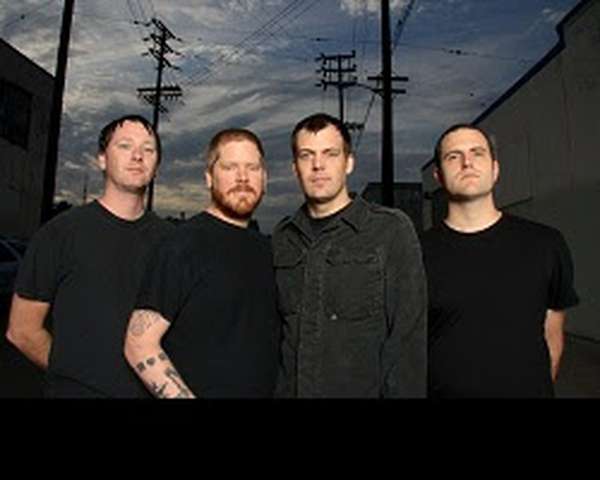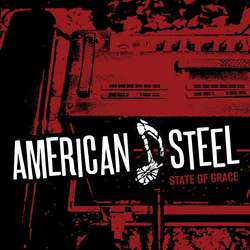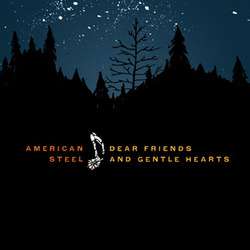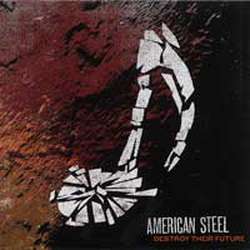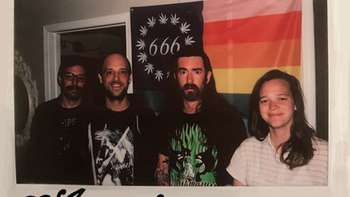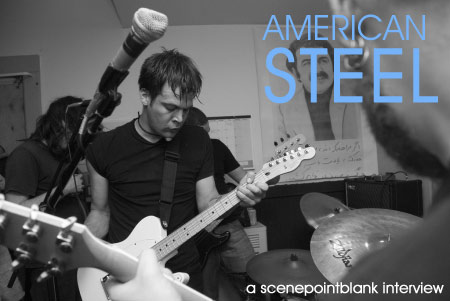
Even with a five-year hiatus in the midst of their time as a band American Steel is a band synonymous with the last decade of punk music. They may not have reached the heights of peers like Rancid or Against Me!, but their place in punk history is undeniable. Scene Point Blank spoke with the band about their most recent album, their ever transitioning sound, and other band-related projects.
Scene Point Blank: You're currently in Europe. How is that going? When were you there last?
John Peck:It's going well, though we did have a few shows cancelled due to voice issues with the headlining band. Things are back on track now, and we're making our way back west across Europe. We're on the continent in a British van, so sometimes people look over at the person in the passenger seat and freak out that the person they think is driving is texting or eating or something. The only other time American Steel has been in Europe was Fall '08 with a German band called the Donots. That tour was on a bus, and it was a lot of fun, though it was almost exclusively in small German cities - they'd already hit all the big cities that spring. We saw a lot of lovely cathedrals and autumn colors. This time we're in a van, so most of what we see is from freeways.
Scene Point Blank: After returning to the US you head straight to The Fest. Are you excited to end a tour on that note?
John Peck: Yeah, it's a nice send-off to 2009. We may play a few local shows before the end of the year, but we're done touring for at least a few months. The Fest 6 came shortly after Destroy Their Future. What struck you about playing to that many people at that point in the band's history?
John Peck: At least for me personally, I didn't realize what a giant thing The Fest had become. I think the last time we played it was The Fest 2 with Communique, at which point it was still just a few shows. So to arrive in this teeming mecca of punk rock was lots of fun. We found the response we got at that show pretty overwhelming, and it really cemented for us that people both dug the new songs and had held a place for the old ones. It was a great show.
Scene Point Blank: With Dear Friends and Gentle Hearts did you have an idea of how it would sound when you started writing?
Rory Henderson: No, I never really start with a preconceived concept for an album. Usually I just write as inspiration comes and sort of follow the white stag. Once I have a few songs together I can pretty well determine a common thread and I will have a loose guideline for the rest of the record. Even when songs are seemingly disparate there remains an intangible thread that connects them, binds them.
Scene Point Blank: The band has covered a lot of different sounds. Do you feel like you've reached what you're aiming for, or is it a constant growth?
Rory Henderson: Either answer implies there is some predetermined goal which there is not. There is no aim, per se, but I don't think we've reached any ceiling yet. So, in that sense, I think there is constant growth. Frankly, I have no clue where we'll go from here. I have some pretty wild ideas but we'll just have to see where it takes us. Every time I think I've successfully painted us into a corner the room opens up on us.
Scene Point Blank: Was it a conscious decision to move away from the sound of your early records, or did it just happen with time? Are you less angry than you were back then?
Rory Henderson: It just happened. Getting older and more self-confident. Although I would say those early records were fueled more by personal mania more than anger. The first record was really an adolescence for the band and I think that comes through pretty starkly. We began leaving the derivation nest, so to speak, with Rogue's March which also coursed with an energetic, desperate darkness due to my/our depression and anxiety with Ryan's illness. Although those two records may be seem pretty similar sonically, I think it may have been one of our biggest leaps to date. Anytime a band leaves that nest and begins finding their own voice it is a big moment. Jagged Thoughts was probably the biggest sound change and, in retrospect, that cavalier jump was pretty humorously naïve. We were honestly surprised when fans reacted as if we had become The Captain and Tennille or some shit. It cracks me up now how jarring that change was for them. At the time people just were not having it when we would play those songs live and the look on people's faces when we would cram "Maria" down their throats is still an all time favorite from-stage image of mine. Now, people yell out for those songs and sing along. It has reinforced my attitude to just play what feels right, as well as nurtured a twisted pleasure in freaking people out.
Scene Point Blank: Do you have a favorite record you've released?
Rory Henderson: No, and if I listen back to them I usually just hear things I wish I could have done better personally or lament an unnecessary third verse etc. I'm generally happy with all of them in their context though. I'm just hard to please.
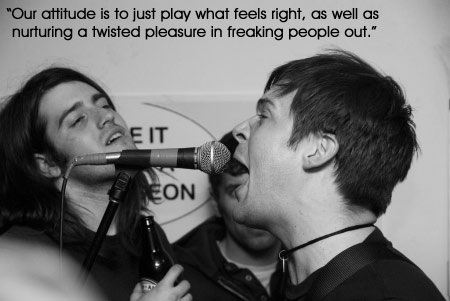
Scene Point Blank: Did you know before the reunion show that you'd be doing American Steel full time again?
John Peck: Not really. We just wanted to try it out and see how things went. What was important to us, if we were going to commit to doing this band again, was to put out at least one new record - we didn't want it to be a "reunion" type of tour just to push our old records.
Scene Point Blank: Did you see a change in your fanbase?
John Peck: It's a good question - I'm sure we lost some people when we broke up, who then went on to listening to other bands or genres. At the same time, putting out new records on Fat has given us access to a whole new crowd who may otherwise have never heard of us. I think what we finally decided is that, number-wise, the net result balanced out.
Scene Point Blank: How did the band change between Jagged Thoughts and Destroy Their Future?
John Peck: The main difference was that in the years between those two albums, when we were recording and performing as Communique, we gained a lot of experience from trying out different instruments and sounds. All the Communique records were either partly or wholly self-produced, which made us much better at getting sounds we wanted. You can hear the very beginnings of that on Jagged Thoughts, where we started experimenting with keyboards and tambourines and such.
Scene Point Blank: Explain the status of Communique. Is it a hiatus, of sorts? What's the primary creative difference between Communique and American Steel?
John Peck: With Communique, we didn't give our hiatus the same emphasis we did with American Steel, so a lot of people were left wondering about the status of that band. The truth is, before we brought back American Steel, we had lost a few players and were back to just the core of Ryan, Rory, and myself. So, in that sense, playing as American Steel was a simple matter of starting to play with Scott again. As we had a three-album back catalog, we could choose any number of songs to start with. The matter of where one band begins and the other ends writing-wise is a bit more interesting. There have been a few songs that could have gone either way, and a handful that started as songs for one band and ended up with the other. But with both bands, we tend to think more in terms of complete albums than individual songs, so as long as a song fits into the record it ends up on, we'll fully commit it to that band.
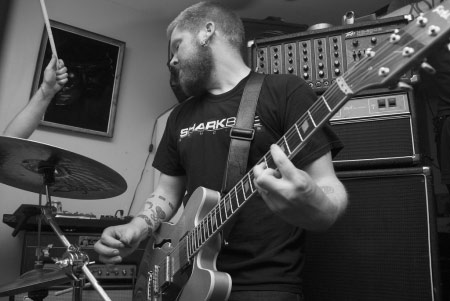
Scene Point Blank: Will you ever combine the two catalogs into one setlist?
John Peck: We've talked about occasionally throwing a Communique song into the set, but with us playing so many support shows lately, it would probably just be lost on the crowd. It could happen someday. We've even joked about the two bands touring together, which opens the door to some great publicity-stunt possibilities, like the two bands feuding with each other backstage.
Scene Point Blank: Ryan, has running Sharkbite Studios affected the band's recording process?
Ryan Massey: Not all that much, other than that I started recording the actual records, rather than just the demos. Our process has been fairly identical since Rogues March: we all play live together to get some kind of feel, and then we overdub our parts as necessary. American Steel records are pretty quick and dirty?we aren't going for a super polished sound.
Scene Point Blank: You just missed a tour to oversee construction. Do you foresee the studio affecting the band's future activity?
Ryan Massey: Well, the studio has made it more challenging to tour, as I worry about the place the whole time I'm gone. I have a couple of people who help me with the joint and they are totally reliable, but I'm not terribly good at delegating tasks: I'm pretty hands on and prefer to do things myself.
Scene Point Blank:Has American Steel, the company, ever contacted you about your name?
John Peck: I don't think the steel company still exists or, if it does, it's been split into a bunch of sub-companies. What's more amusing is the occasional biker and/or country band that goes ahead and takes the name "American Steel" without doing a basic Google search - you can probably dig a little and find some of these gems on your own...
Scene Point Blank: Thanks, and good luck on the tour.
John Peck:Thanks - hope to see you soon!
Words: Loren | Graphics: Matt | Photos: Stephen Loewinsoh
- Official American Steel Website: http://www.americansteel.org/
